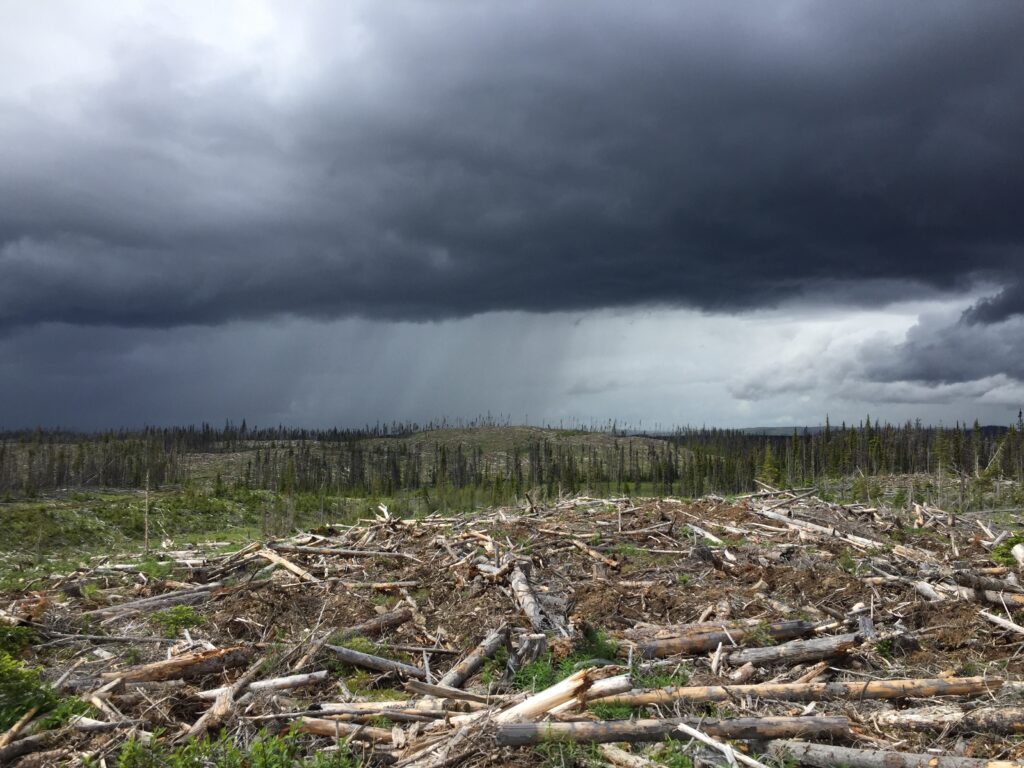
I’ve always had an interest in the natural world and preserving it. Even as a young child, I enjoyed running through the coastal forests. But, what made me pursue an education in the Natural Resource sciences are these vivid memories I have of seeing construction sites in what I thought was the middle of the forest and hating it. I saw what they were doing and immediately wanted to prevent it; I wanted to protect my beloved forests.
Before I had any formal education, I was not aware of the scale of global deforestation and ecosystem destruction and assumed they were local. Because of this assumption, I believed these problems did not occur anywhere else and that the rest of the world, or at the very least, Canada, was fine. As a child,I believed these things I viewed as problems (although minor in the grand scheme of things) were restricted to my neighborhood (The Lower Mainland). Part of the reason for this belief was that my family and, to some extent, the media, told me that everything was okay, and I shouldn’t be concerned with the destruction of the environment. Even as I became older, and could see that things in the world around me were not okay, some part of me still remained blind to it all. However, everytime I visited a small town I was painfully aware of my ignorance. The deforestation issues that I’ve always had in the back of my mind would resurface, and I would feel very lost and insignificant. Then, when I moved away from home to attend Thompson River University’s (TRU) Natural Resource Science (NRSC) program and went tree planting for the first time during the summer of 2019 I was provided with a lot of insight into forestry in BC.
I think the major shift in the way I see thighs now, in terms of environmental sustainability, was kick started by the NRSC program and tree planting. My journey into being more environmentally friendly and conscious was not smooth. I initially came to TRU to pursue a Bachelor of Science, but I became discouraged when I failed a calculus class in my first year and almost dropped out to pursue a career in trades. Luckily, a good friend recommended I try the NRSC program, and I have been here ever since. I started the NRSC program in September of my second year (2018). The first class I remember taking was Forest Ecology. It was while taking this class, it felt like a little lightbulb went off in my head and everything clicked. In this class, one of the things that was frequently mentioned was climate change and with it the high rate of deforestation, not only in Canada, but globally. Canada’s impact on the climate and the country’s rate of deforestation is not as bad as elsewhere in the world because Canada has reforestation practices and the laws put in place by the ministry of Forest,Land, Natural Resource Operations and Rural Development (FLNRORD). While out in the bush reforesting cut blocks, I had the opportunity to see how ineffective the reforestation practices and laws are which we learned about in that class. They are not very effective. My first summer as a tree planter was eye opening because I gained first hand experience with the things I had learned in class. One of the most impactful things I experienced during that summer was the difference between learning about a 2000 hectare cut block and the reality of seeing one with my own eyes. A clear cut of that size is truly something; as far as the horizon stretches all you can see is barren ground, stumps, dead undesirable trees and destruction. What really made it stand out was the forest surrounding it. The intact forest harbours trees that I could not wrap my arms around, high plant and animal diversity, and extensive habitats. Going against the diversity of the natural forest, when we reforest we simply plant a massive monoculture, like a giant field of corn. While working in these areas, it is easy to see the impacts of planting monocultures on a forest; the crop is susceptible to massive pest outbreaks and wildfires. It is easy to see this damage because those are the areas in which we are working, giving me a front row seat to the cycle of the process.
My experiences tree planting and the educational route I’ve taken have really opened my eyes. Everyday, they push me to be more aware of my carbon footprint, a legacy I do not want. It is truly eye-opening to see and be a part of what happens in Canada, and more specifically, in BC’s forests when no one is looking. It made me realize how much trouble we (the human race) are in. I would be lying if I said I did not feel completely powerless when considering what difference I could make as a single human being. Why does what I do matter if the government sanctions ecosystem destruction on a massive scale? And the worst part is that logging is important for the economy. I am not against logging itself, I am against irreparable habitat destruction. However, nowadays my mindset is a little more positive. I continue to make sustainable choices and I am still tree planting. My career goal is to work in the natural resource sector where I know I can make environmental choices which will have an impact, and hopefully make a better, cleaner world.